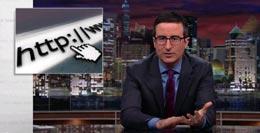Battle for open internet continues

By Open Media,
Special to The Post
Special to The Post
How exactly does Bob Latta’s legislation keep the Internet ‘free and open’?
Over the past few weeks, the public outcry over the possibility of having our favorite websites forced into an Internet Slow Lane by the FCC’s new Internet rules has been nothing short of inspiring. The battle for a fair and open Internet has found new allies all over the place – and has given Internet freedom advocates everywhere hope that “net neutrality” is fast becoming a household issue.
In the meantime, confusion persists over net neutrality and various efforts to either preserve it or destroy it. One of the most confusing developments has been the legislation proposed by Representative Bob Latta (R-OH), who recently announced Internet legislation, which he claims will help ensure the Internet remains "open and free.”
Unfortunately, Rep. Latta seems to have an entirely different definition of “open and free” than that of those involved in the fight for the open Internet. You see, his legislation would actually legally prevent the FCC from creating real net neutrality, and would ensure that websites who can’t pay new “prioritization” fees get stuck in the slow lane.
This means that the FCC would be forbidden from reclassifying broadband as a Title II common carrier service under the Telecommunications Act, which is widely accepted by experts as the only way to guarantee true net neutrality.
If passed, this would mean the FCC has no way to stop Internet service providers from blocking or slowing down content online. And, in response, companies like Comcast or Time Warner Cable (who, by the way, are in talks to merge right now) can negotiate special deals with any website they want for any amount they want, and leave the rest of the web behind in the slow lane.
One might wonder what would possibly motivate an elected official like Rep. Latta to propose legislation like this? Especially since strong net neutrality proposals have met with a broadly sympathetic reception in the nation’s capital, and support from millions of Americans. Recently, even celebrities like George Takei and John Oliver have come out in defence of the open Internet.
Well, if Rep. Latta wasn’t convinced by the anti-net neutrality letter being pushed by U.S. Big Telecom’s lobbyists alone, we might want to consider following the trail of money. As Free Press’ Timothy Karr points out in this well researched piece, it appears Rep. Latta’s behavior may have something to do with the nearly $320,000 in campaign contributions he’s taken from Big Telecom in the time he’s been in office. That letter from Big Telecom lobbyists must have seemed an awful lot more convincing when it came with 320 grand worth of campaign funds.
Regardless of his motivation, we have to keep the pressure up and refuse to let decision-makers in Congress or at the FCC force us into an Internet slow lane – or the Internet we’ve come to love will begin to look a lot different, and some of our favorite websites and services could slow to a crawl or even disappear entirely.
If you haven’t already, speak out today at https://OpenMedia.org/SlowLane
Leave a comment









